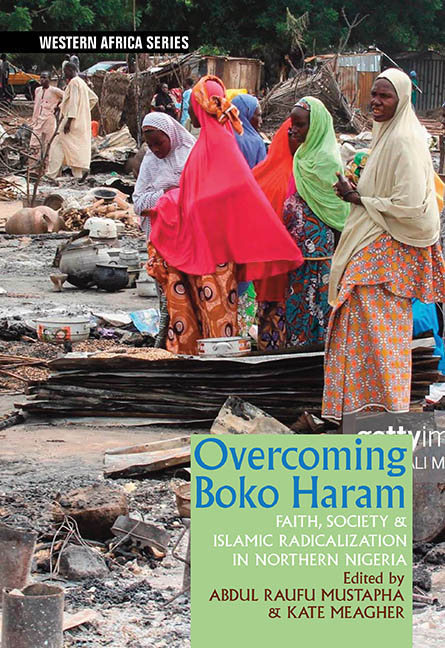Book contents
7 - Gender norms & female participation in radicalization
Published online by Cambridge University Press: 21 March 2020
Summary
Introduction
The kidnapping of 276 school girls in April 2014 in Chibok in Borno State in northern Nigeria, brought the Jama‘atul Ahlul Sunna li Da‘wati Jihad, commonly referred to as ‘Boko Haram’, into global headlines. This singular event highlighted multiple dimensions of a chronic crisis: expanding Islamist terrorism in northern Nigeria, the government's ongoing failure to address the insurgency, critical data gaps on Islamist radical groups, as well as the position of women in northern Nigeria and in this group. Gender has become one of the many terrains on which battles – ideological and otherwise – are fought, often in the guise of Islamic purity. Yet, northern Nigerian women have not just been passive victims; they have contributed to resisting, and sometimes to shaping radicalism.
Much of the available literature has lamented women's victimization and celebrated their struggle for empowerment but has shied away from the other side of the coin: women's active participation in radical movements and their active engagement in forms of counter-radicalization. Sit-ins and protests led by women pressing government to ‘Bring Back Our Girls’ are an example of the agency of women and their resistance to forms of victimization such as the kidnapping of the girls in Chibok. At the same time, news about willing female suicide bombers in Boko Haram brought up a different side to women's presence in a charged public space, as perpetrators. Current studies of the role of women in Boko Haram tend to restrict their focus to the role of women as victims and perpetrators (Matfess 2017), yet the reality of women in northern Nigeria today transcends and challenges those binary perspectives. Victims can also be active agents of change and vice versa. Northern Nigerian women do not only exercise agency as participants in violent groups, but can also be agents of positive forms of change. The purpose of this study therefore is to examine how social norms shape the role of women in Boko Haram – both as victims and as willing participants – but also as active players in countering violent radicalization.
- Type
- Chapter
- Information
- Overcoming Boko HaramFaith, Society and Islamic Radicalization in Northern Nigeria, pp. 193 - 224Publisher: Boydell & BrewerPrint publication year: 2020

